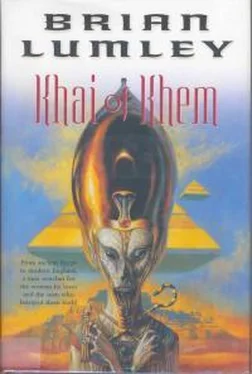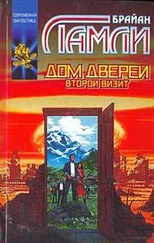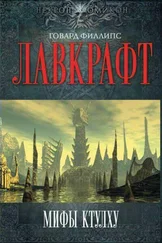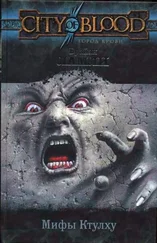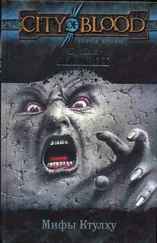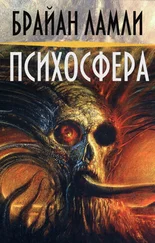No treachery this, but vengeance! In the two days since the Khemish regiments had fallen back into defensive positions about Asorbes, the mercenaries had looted everything worth taking and raped even tiny children. Seeing their danger, the townspeople had kept them drunk most of the time, which accounted in large measure for the ease with which Wad-Gahar fell to Khai’s warriors. Toward evening, it was all over and the general issued strict orders that the ordinary folk were not to suffer any further molestation at Kushite hands. There was little worth the taking in the ravished town and its people had already lost more than enough. As Khai watched the townspeople building huge funeral pyres for the dead, his attention was called to evidence of several Theraen atrocities. One of these had been a local brothel, where the women had been beaten and raped repeatedly, even unto death. Arriving on the scene, he found a number of drunken Theraens asleep in various rooms where they were previously overlooked. Each of them he roughly awakened, then personally put to the sword. Passing out of the place into evening air which already stank of burning flesh, he caught sight of a still mop of crinkly raven hair just inside the door. It was the head of a woman whose body lay with a number of other corpses, still and stiff. A tremble ran through Khai’s massive frame then and he leaned weakly against the brothel’s wall. Now he knew why the name of Wad-Gahar had struck that chord in his mind.
Kindu and Nundi were with him—those dear friends of his out of Nubia, whose very lives were his—and now Kindu said: “Lord, something ails you.”
He nodded. “Aye, possibly. There is a woman in there. She is not black, not quite white, and her hair is much like yours. Bring her out here in the light, for I think I know her.”
In a moment, the woman’s body lay upon a blanket for Khai’s inspection. Her eyes were closed forever now, but they were slanted and had known much laughter. Long-legged and dusky, she was that Mhyna whom Khai had known so long ago. Her own dagger protruded from her breast, with her own hand clenched tight about its hilt.
Khai washed her face and cradled her head and said nothing for a long time. His men left him sitting there and went about their work. As darkness crept in Khai looked up, his eyes dull with unspilled tears. His Nubian lieutenants followed him as he carried the woman down to the wharfside and laid her in the finest barge he could find. Then he poured oil on the reed decks and cast off the mooring rope. As the barge moved out into the river, he took a brand and tossed it aboard, then watched Mhyna’s pyre pass down the river into the night.
That night, Khai camped just south of Wad-Gahar, and the next day saw him ferrying his army across to the west bank. This was not such a giant task as might be imagined, since less than half of his men had crossed with him at Ohath. Now, too, his carts and chariots were brought up and prepared for the final stages of the war—which were to be the siege and eventually the taking of Asorbes. It was late afternoon when the last barge came across, and in the final hour before twilight a hush fell over the river and its banks which was quite unlike anything Khai had ever known before.
There seemed to be a premature darkness to the sky, and not in the east but to the south. Yes, the sky over Asorbes was dark—and it was moving!
Khai was one of the first to note the phenomenon. Standing on the bank of the river and watching the darkly mobile mass of sky to the south, suddenly a dizziness came over him that caused him to stagger. Shading his eyes, he leaned against a palm and continued to watch the sky; and as he did so the giddiness came again and he would have fallen. Now, wrapping his arms round the bole of the palm to support himself, he closed his eyes tightly and felt his gorge rising. Then—
“Khai,” an echoing voice said in his head, “do not be afraid, but listen to me. I am the Mage of Mentalism, whose powers were learned as a youth in Syra from an old magician out of the east. I have sought you out to bring you a second warning.”
Khai shook his head and looked wildly about. It was one thing to dream of warnings and such—even to know that such dreams were the work of the seven mages in Kush—but it was quite another to be visited in broad daylight! Shaking his head only made him feel more sick, however, so that he soon desisted and again closed his eyes; at which the voice in his head became much more insistent:
“Do not fight me, Khai, for time is short. My message goes also to Manek Thotak and to Genduhr Shebbithon. Manek hears me and may save himself. Genduhr will not listen—and he is a dead man!”
And now Khai recognized the urgency in the soundless voice and knew that this was no trick of his mind. “Very well,” he said out loud, “say on.”
“Birds and bats and insects, Khai, flies and locusts and wasps. They will devour all that is green, everything that moves. And we seven mages have no power over these, which are not of the elements. The Dark Heptad makes dangerous magics indeed!”
“Are you saying that we’re doomed?” Khai asked, aghast. “All that is green—all that moves!” the mage’s voice repeated, more faintly, echoing as down a long, long tunnel. The giddiness passed and Khai opened his eyes. Now, too, the sounds of his men broke in on his consciousness, their cries of awe as they pointed south and skyward.
For the sky was alive with a great black blot of a cloud that shut out the light even as it descended like a mighty blanket out of heaven. The men began to panic; horses reared and stamped; the heaviness of the air became oppressive, and fear was a living thing which tittered and ran through Khai’s warriors tapping each man lightly on the shoulder.
“Listen to me,” Khai roared above the sudden moaning of his men. “Blindfold the horses. Do it now, and quickly! Let them see nothing. Then, when the horde descends, stand still. Remain still if it lasts all night. If you are stung, do not jump. If you are bitten, do not cry out. This is the word of the seven mages. If you would live—obey!”
His words spread like wildfire through the massed thousands. Blankets were brought out and thrown over hurriedly blindfolded horses; men covered themselves as best they might and sought shelter beneath carts or in the buckets of chariots; for minutes which sped by quick as seconds the army was a scurrying shouting mass of humanity. And the sky grew dark before its time and the air began to hum with a vast stirring of wings.
“Don’t move!” Khai yelled one last time, and his cry was taken up and passed on echoingly in the leaden air. Then he crouched at the base of his palm and covered his head. Nundi, running up to him, threw a horse blanket over him and crouched down with him inside its folds. In another moment the roar of millions of wings blotted out all else and beneath the blanket it grew suddenly black as night.
Things landed on the blanket, many things, large and small, until their weight became intolerable. “Don’t move,” Khai hissed in Nundi’s ear. “Not an inch!”
Then, after a matter of a few moments there came a sound like the trampling of feet, a crunching and sloshing as of an army marching over swampy ground. Amazed and horrified, Khai listened for a second or two, then said: “By all the many gods they’re eating!”
Somewhere a horse screamed, a cry of dreadful fear, of agony. There was a commotion, a wild burst of animal movement, a frenzied whinnying and then another scream—but this time human! Nundi jerked in shock when he heard that hideous, fear-frenzied shriek, and jerked again and began to tremble violently when the scream subsided to a suffocated gabbling which was snuffed out beneath a vast whirring of wings and a more noisy recommencement of the feeding sound.
Читать дальше
